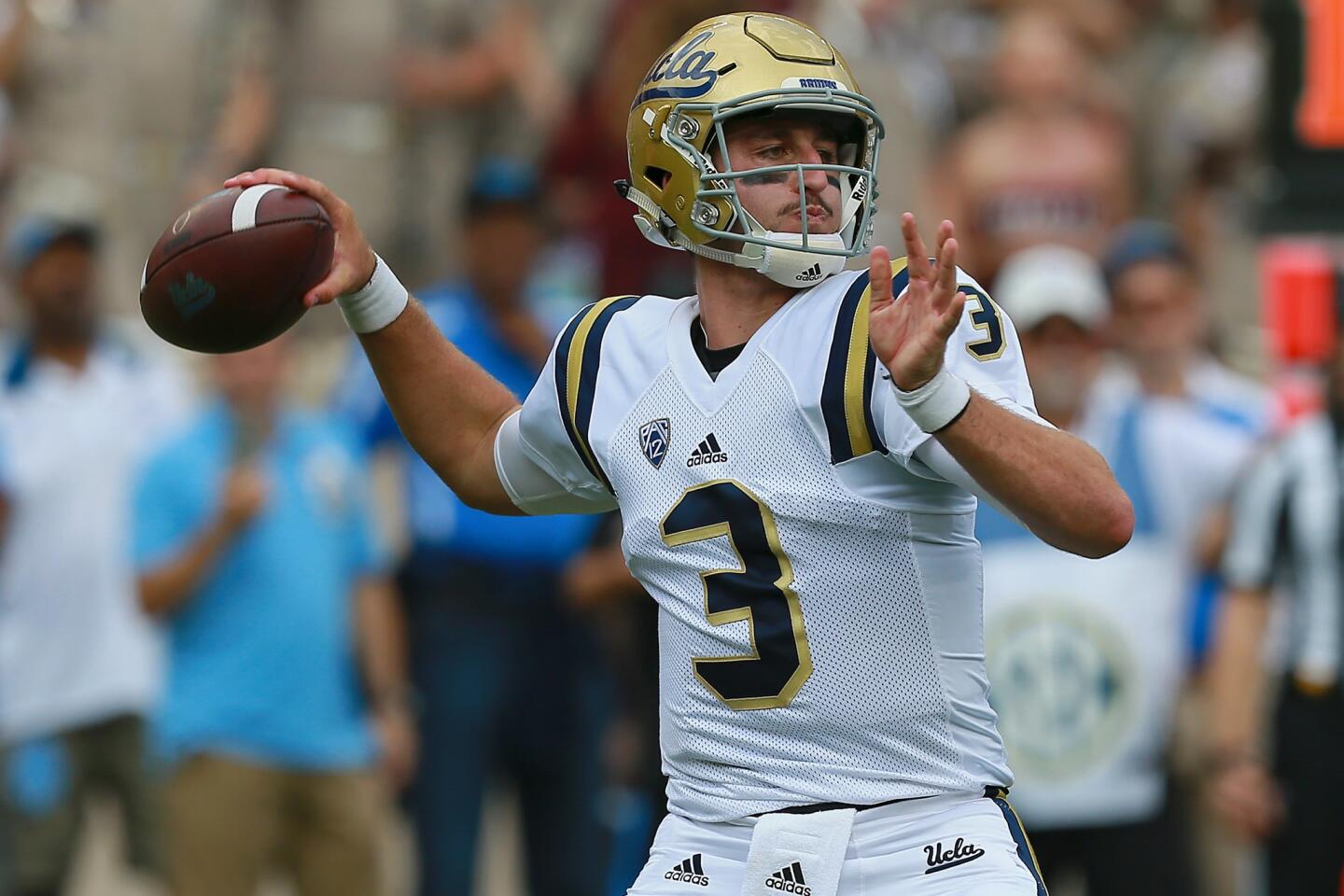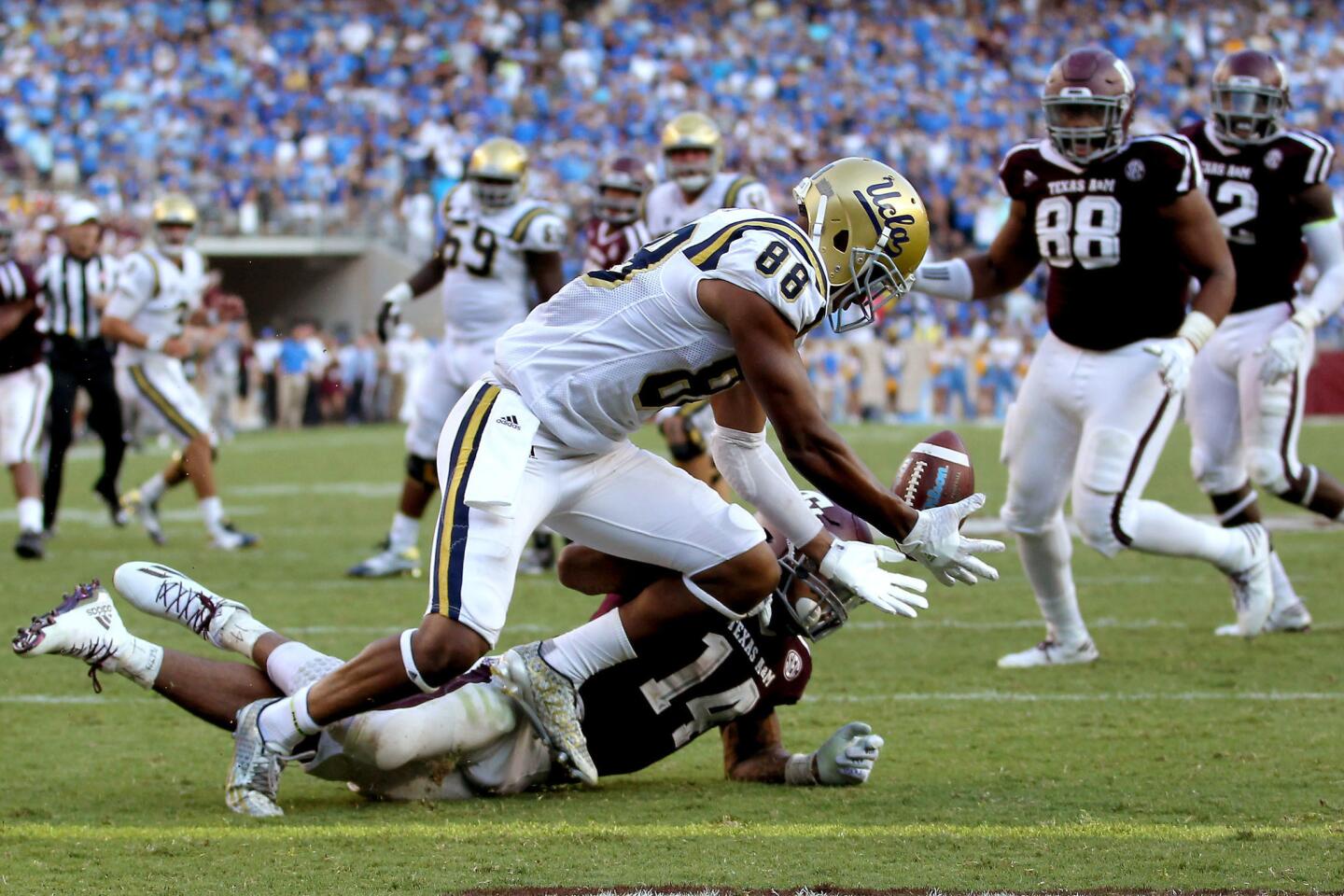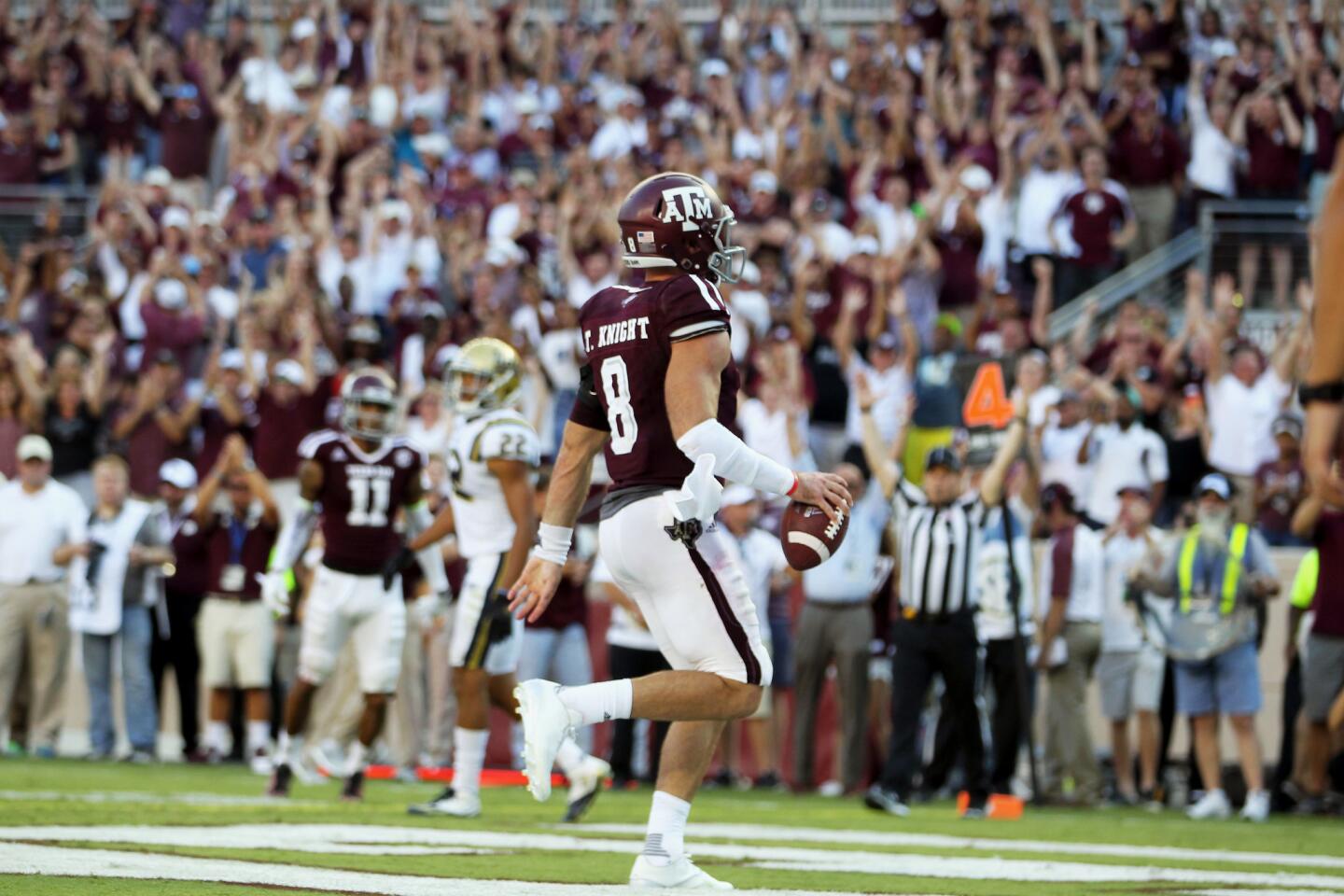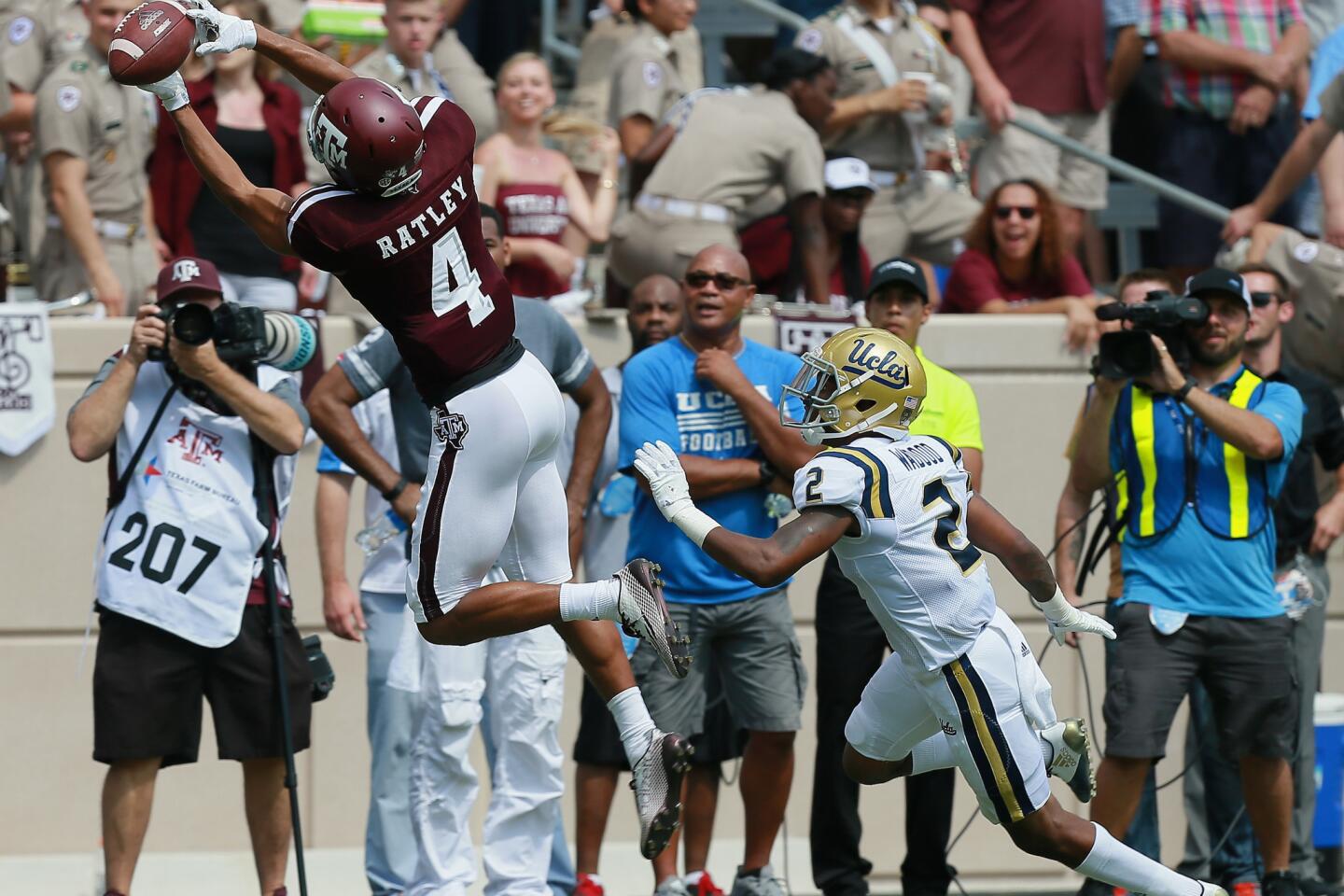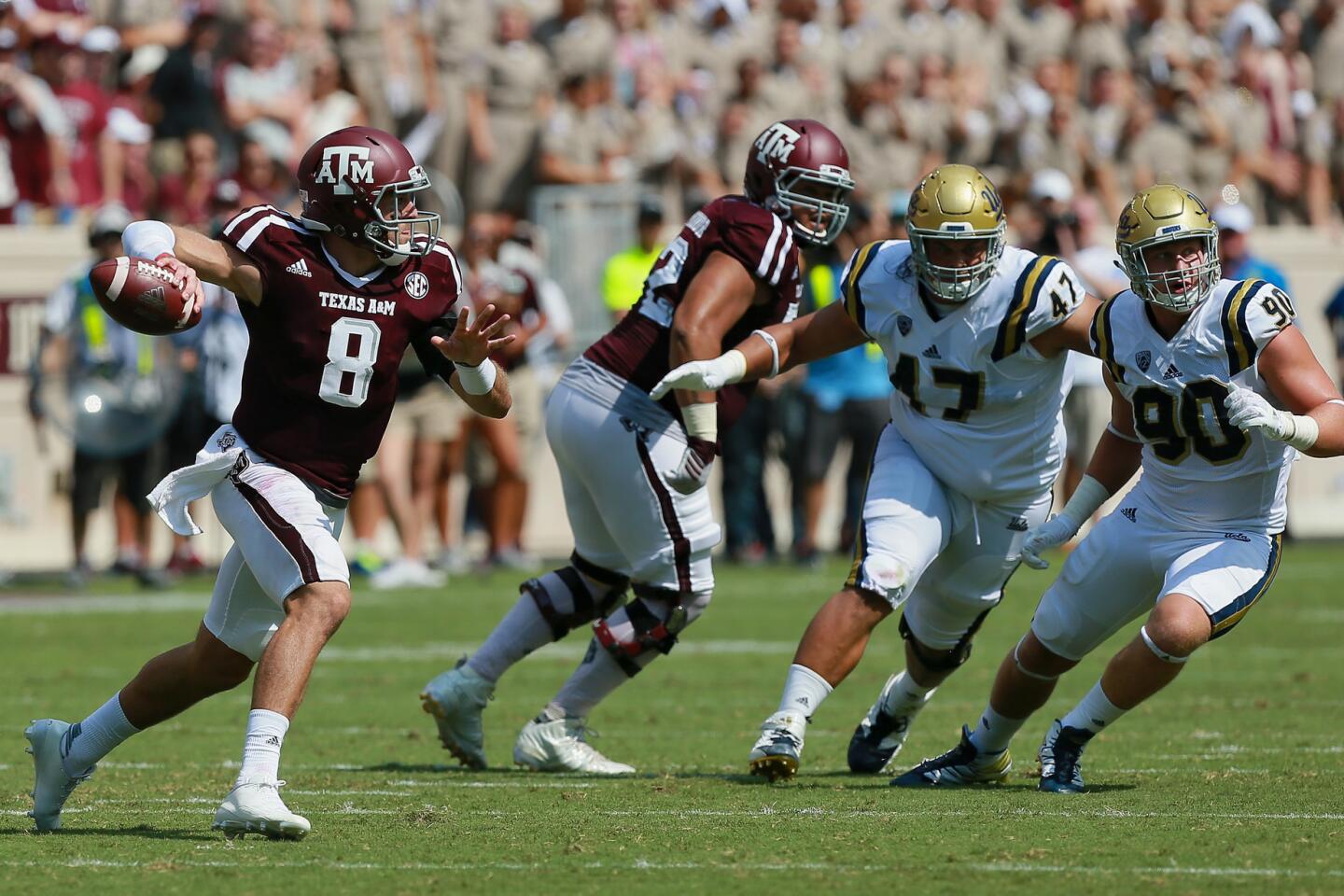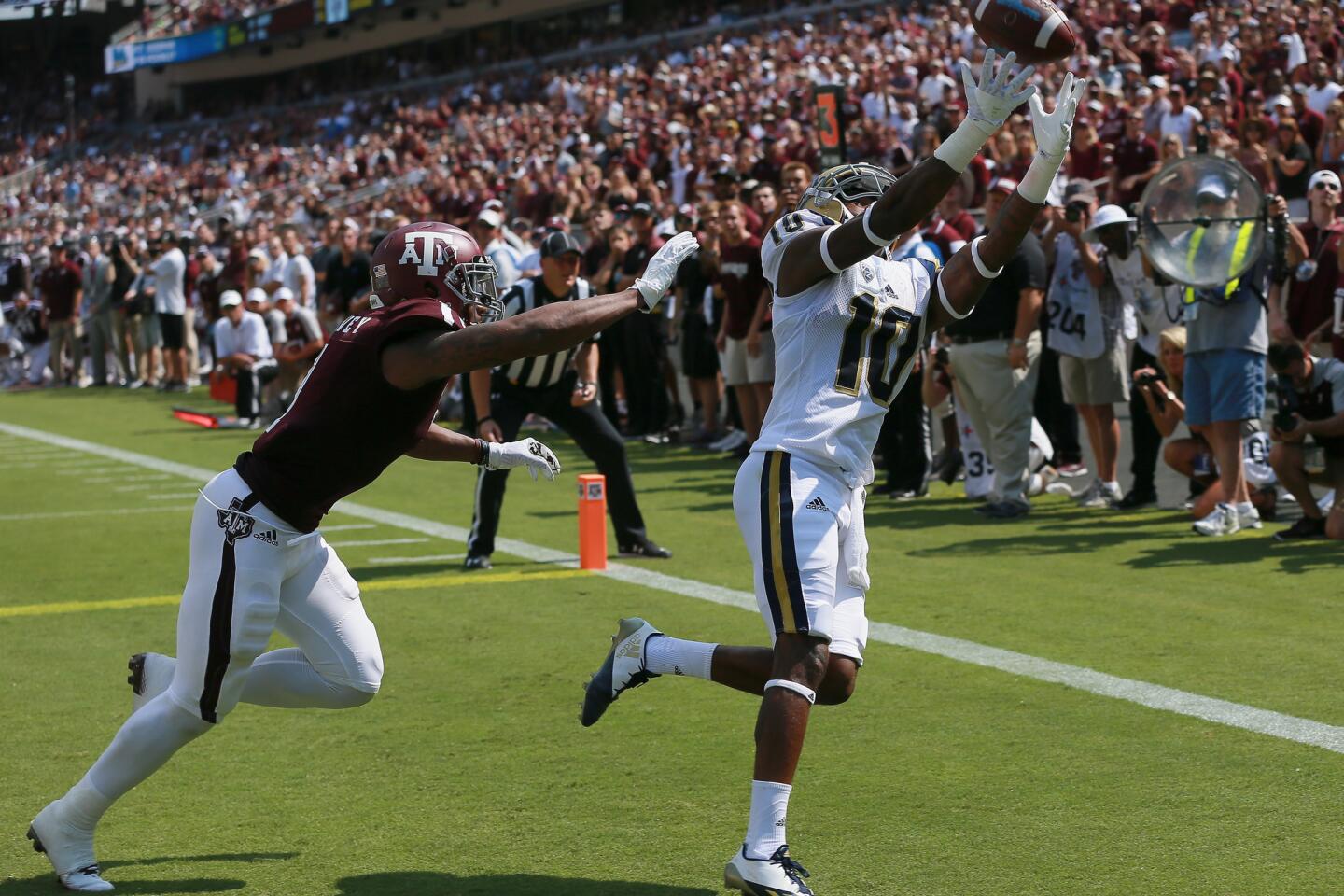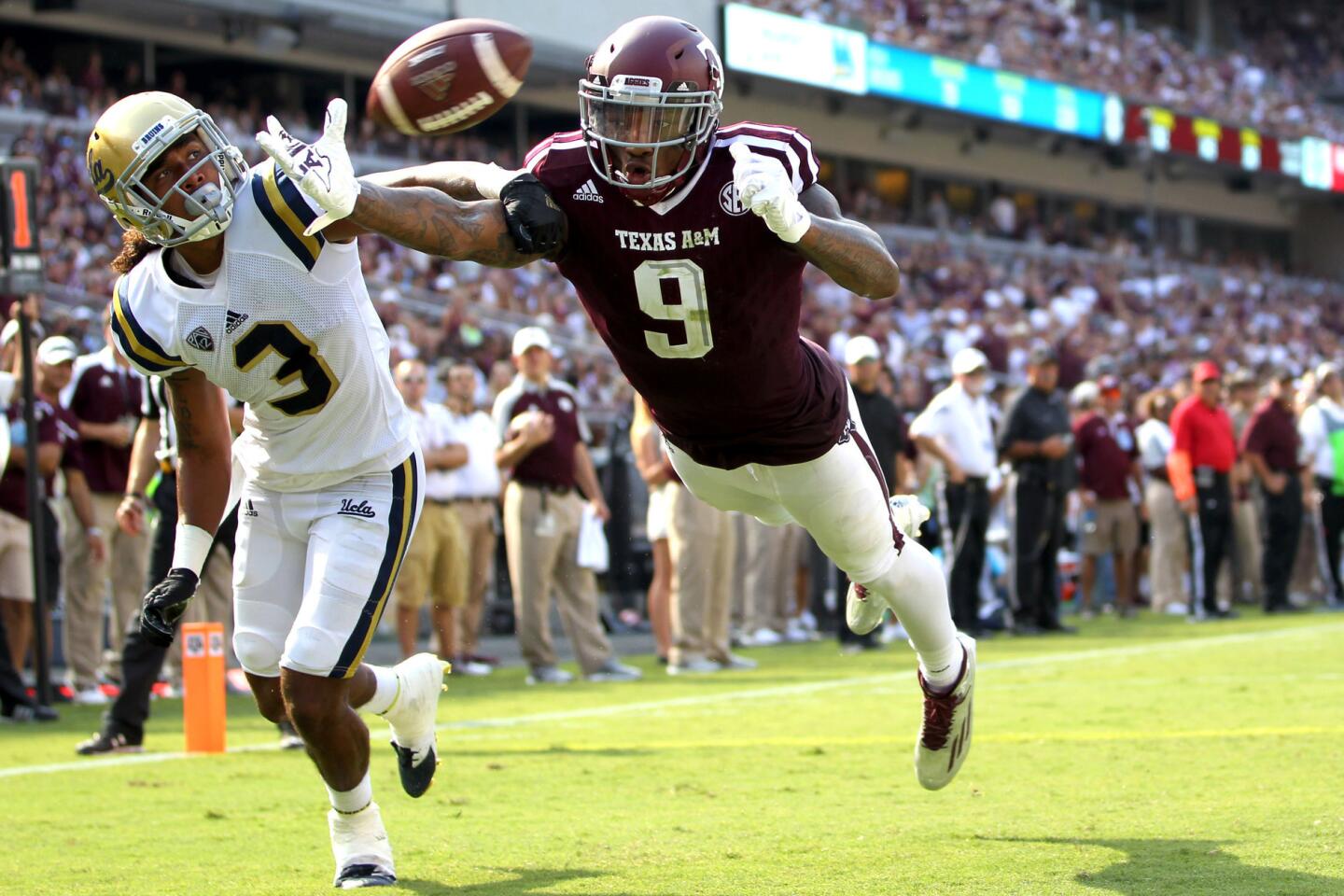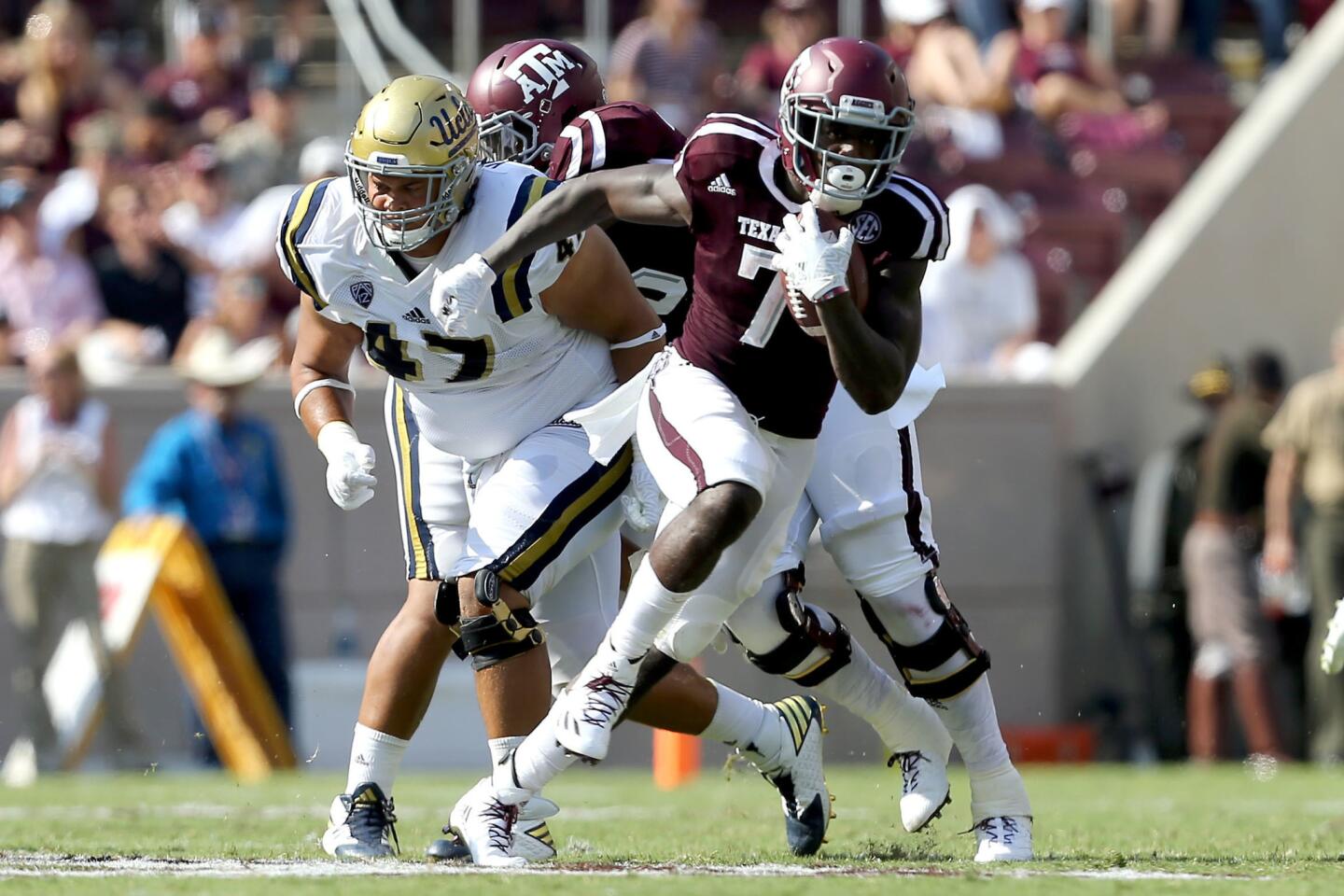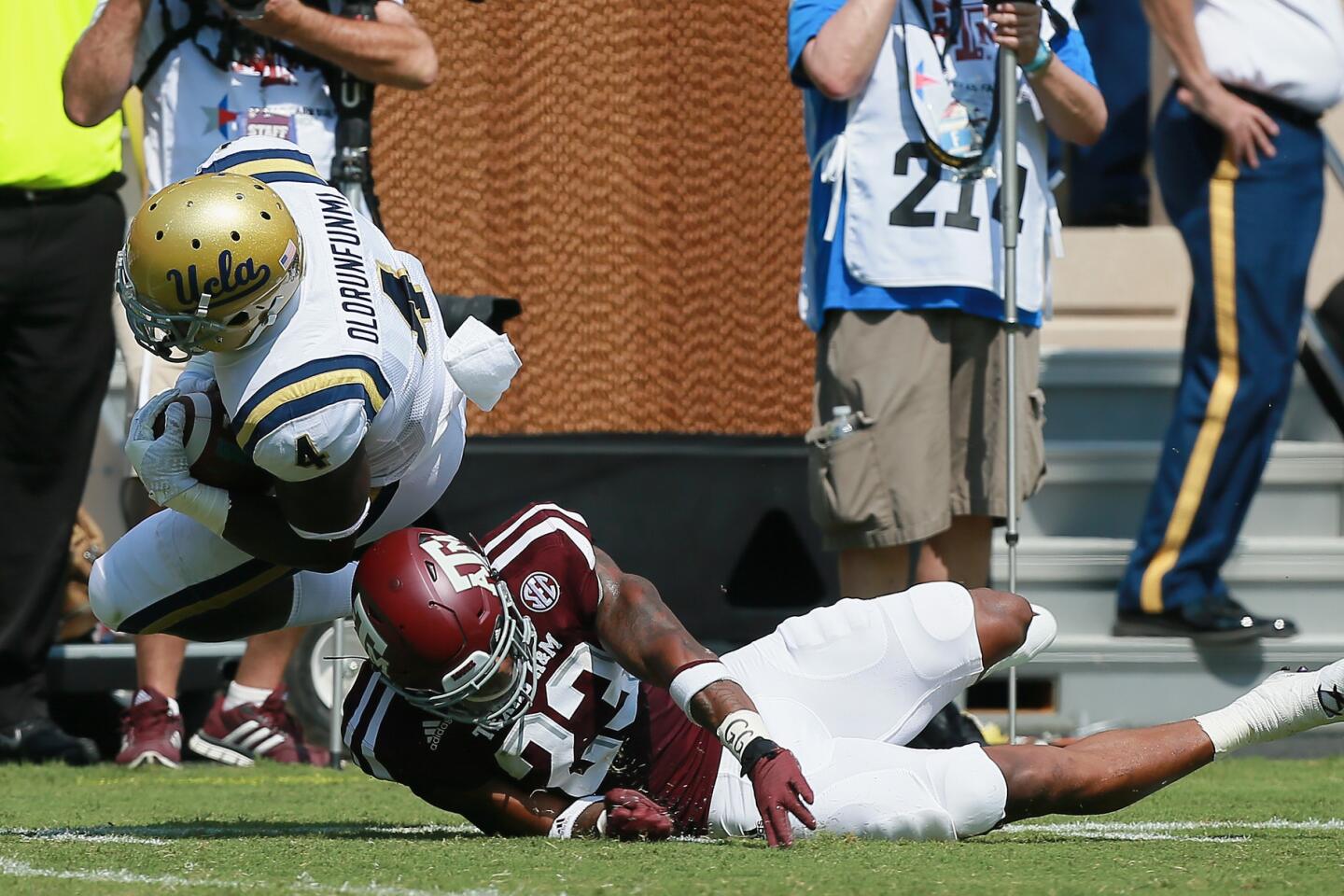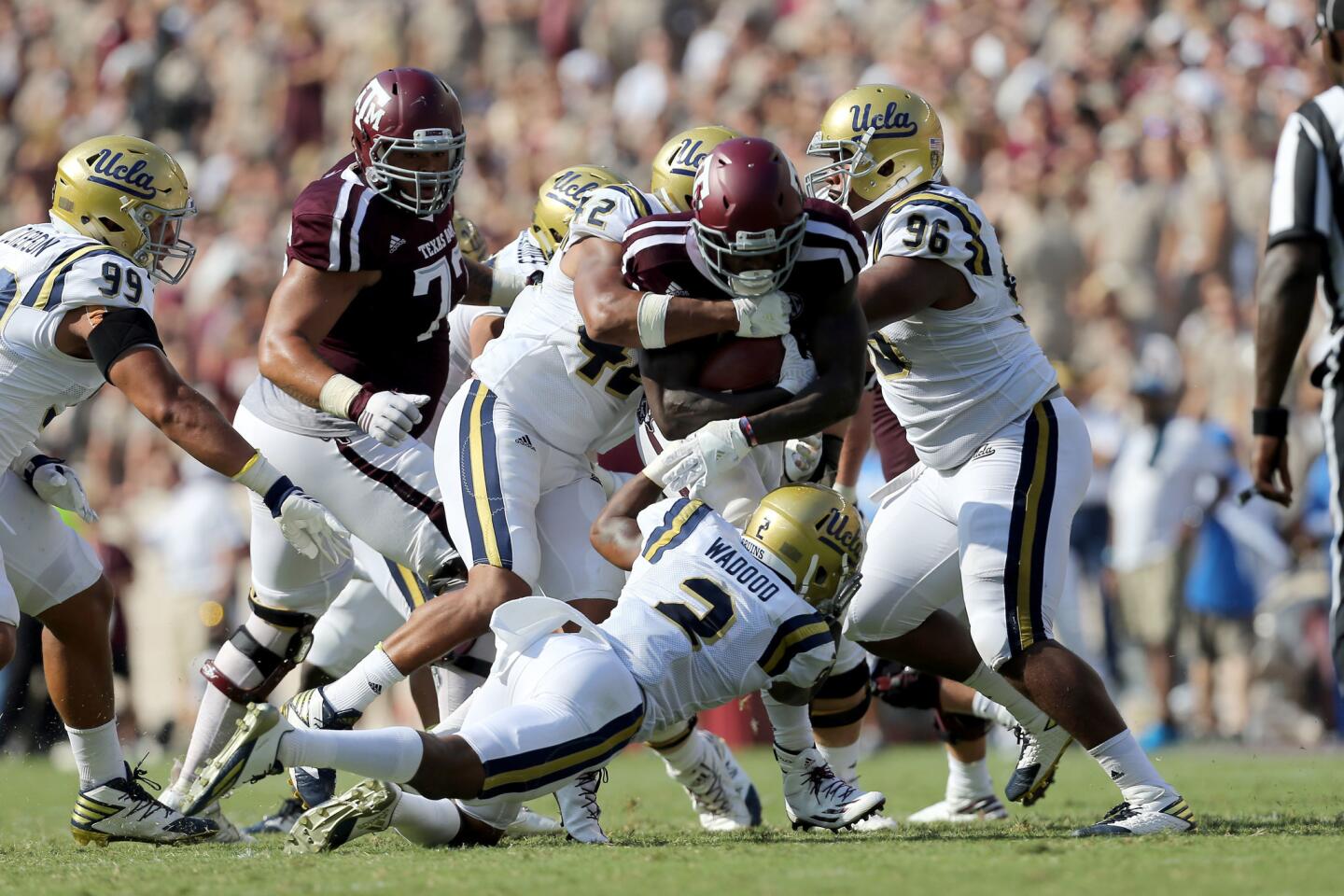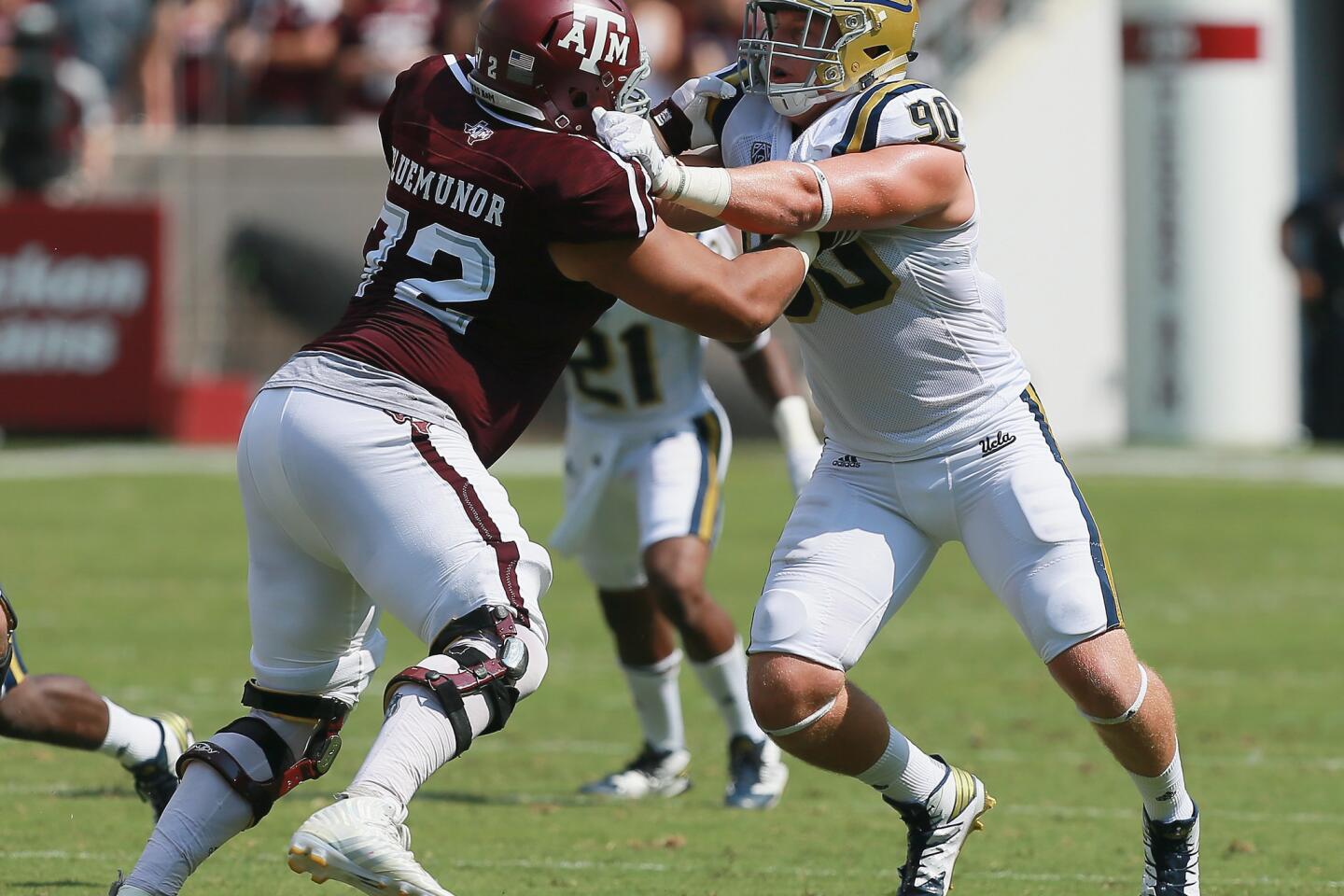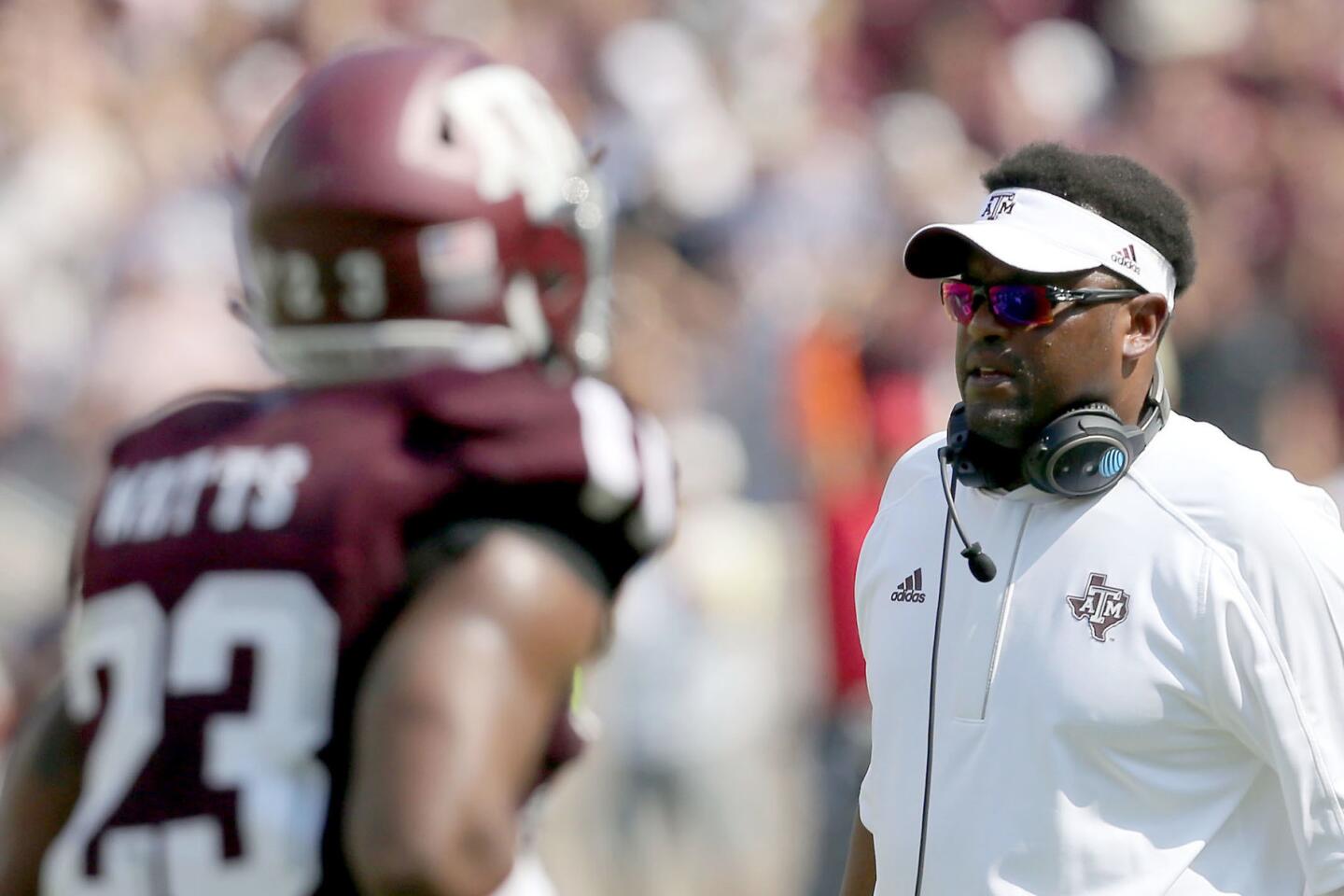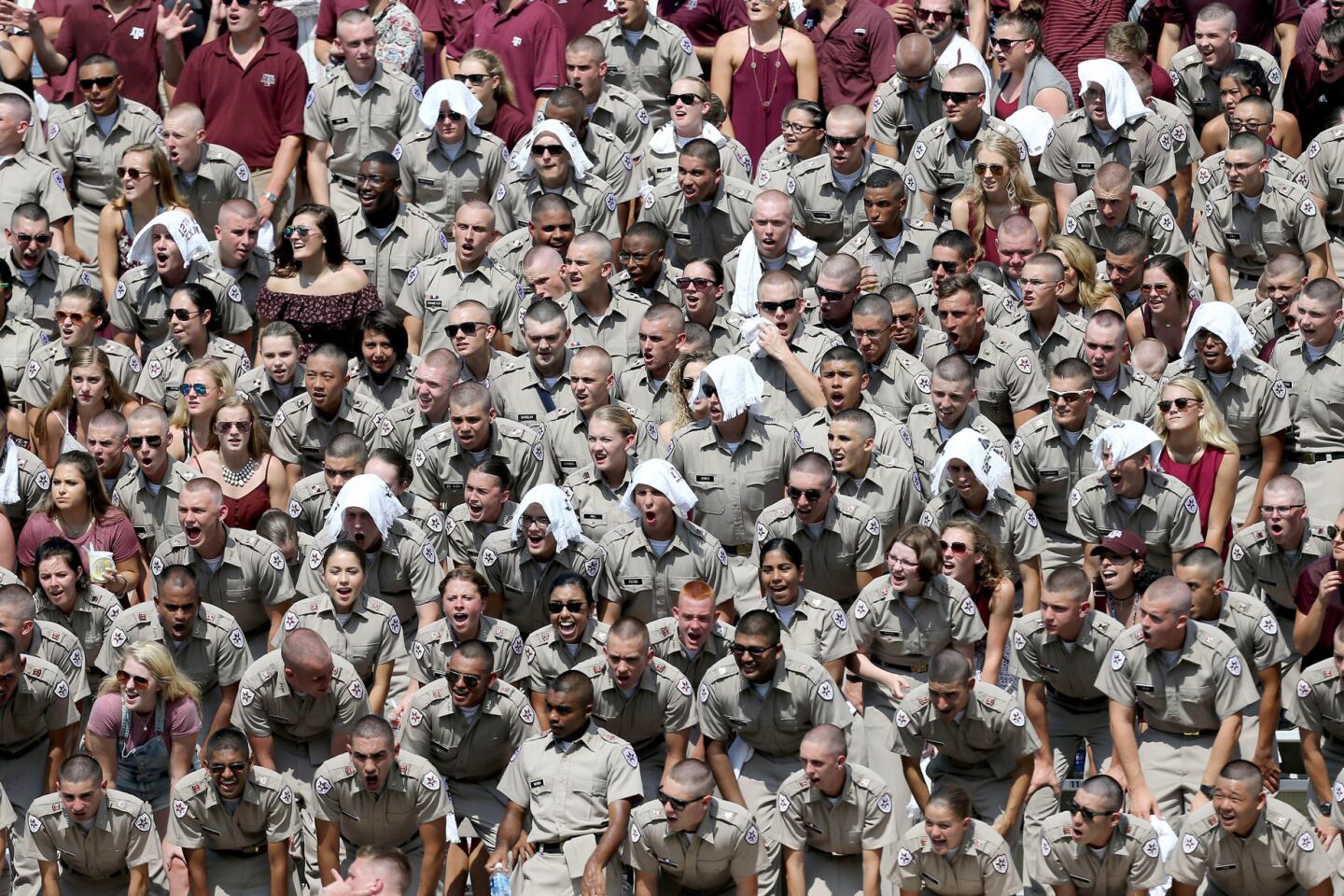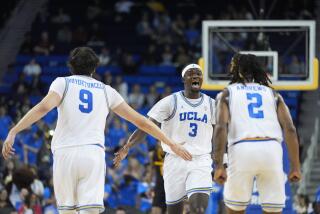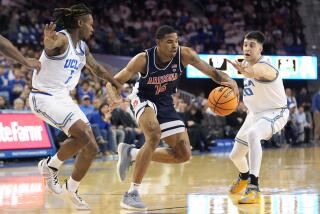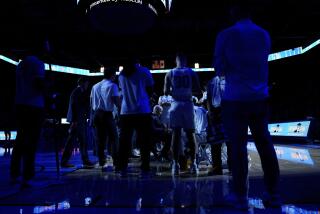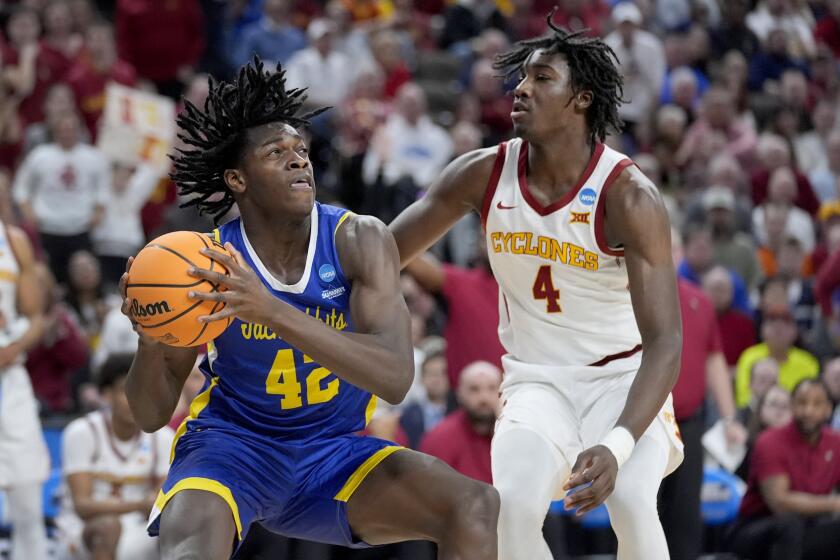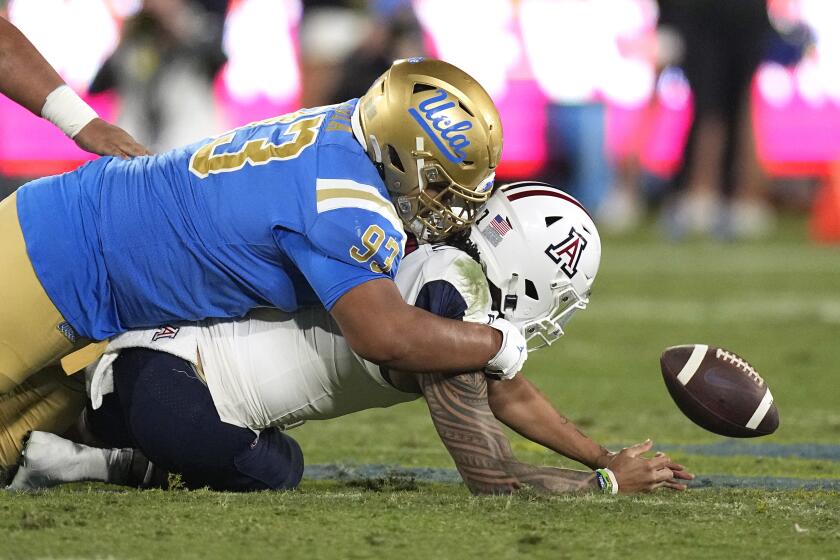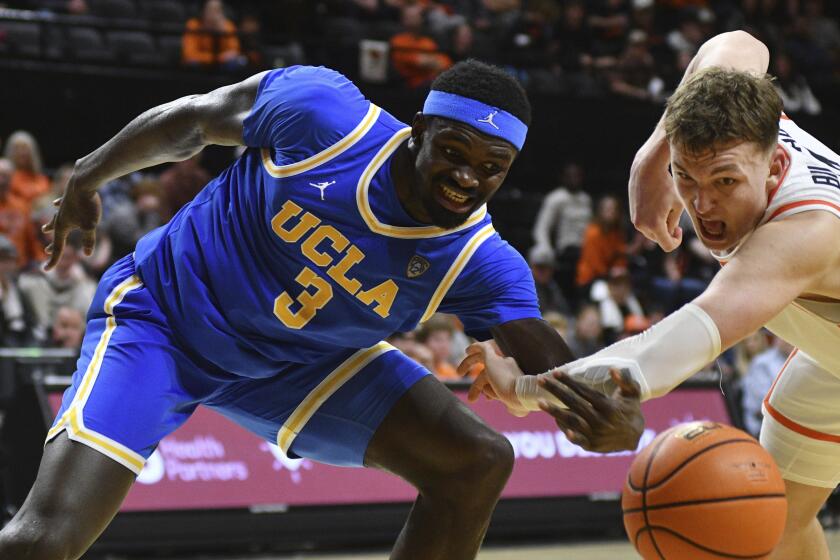UCLA’s loss was a trial by fire for offensive coordinator Kennedy Polamalu too
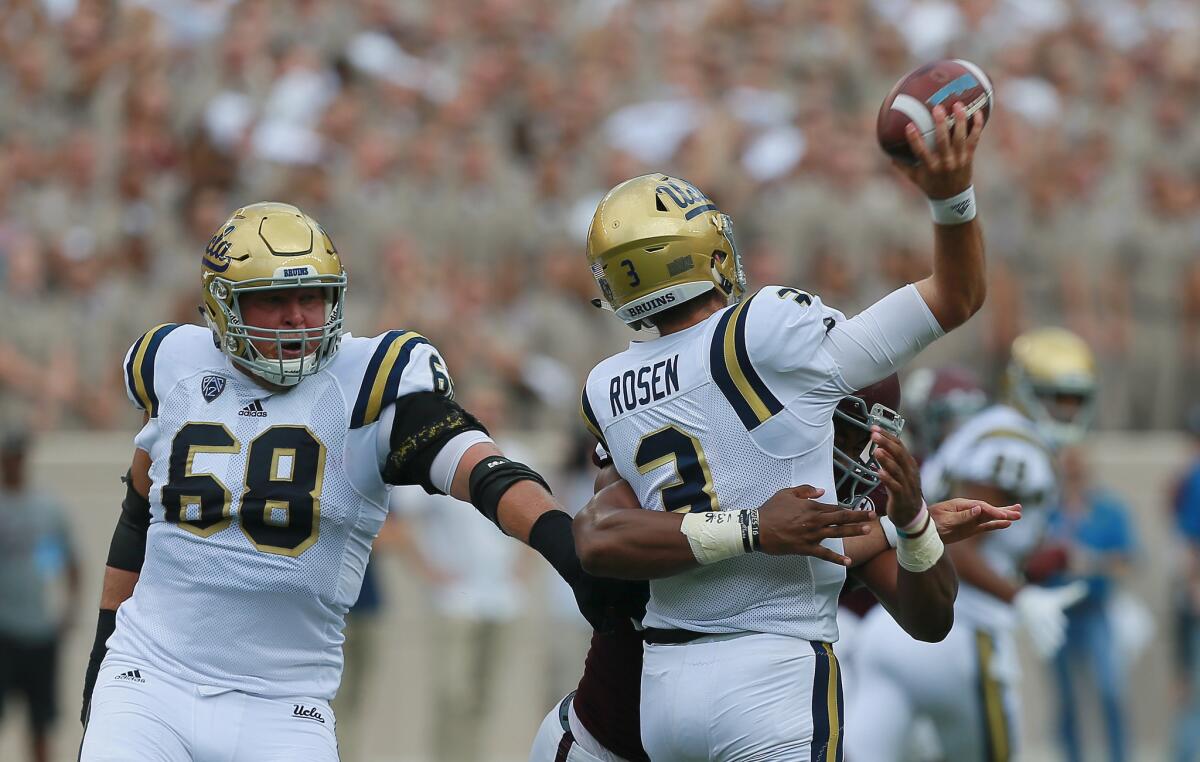
UCLA played eight first-year freshmen Saturday in its season opener. None faced the pressure of the team’s most scrutinized rookie.
Offensive coordinator Kennedy Polamalu called plays for the first time in his lengthy coaching career and it didn’t go well until well into the fourth quarter of the Bruins’ 31-24 overtime loss to Texas A&M at Kyle Field.
It’s probably a good thing Polamalu didn’t have time to scan fan message boards, where he was derided for a lack of creativity and variety through the first 3 1/2 quarters.
Some fans pointed out that he couldn’t be blamed for the dropped passes, yielding offensive line or bad decisions of quarterback Josh Rosen, who was culpable for two of his three interceptions.
But Polamalu appeared to indicate the need for self-improvement even after the Bruins rallied from a 24-9 deficit to force overtime.
“This was the first time I was calling the plays and analyzing them on the sideline and trying to analyze the whole team,” Polamalu said Saturday evening. “It was new for me, so I’ll do a better job next game too.”
UCLA might not face a more relentless pass rush this season than the one Texas A&M unleashed. That might have been the only positive takeaway for the Bruins’ offensive line.
The Aggies sacked Rosen five times, a number made all the more startling because it’s more than a third of the 14 sacks the Bruins allowed last season.
Texas A&M defensive end Myles Garrett recorded only one sack but continually hurried Rosen. One of Rosen’s interceptions came as a result of his flinging the ball up for grabs while in the clutches of an Aggies defender.
UCLA’s line did strengthen late in the game. Texas A&M sacked Rosen only once in the fourth quarter, but the Aggies held the Bruins to a meager 3.1 yards per rushing attempt for the game.
“They got us a few times,” Polamalu said, “and it was really nice that when we needed a drive that they answered and that’s the new UCLA.”
Attention grabbers
A couple of candidates emerged in the race to become Rosen’s go-to receiver.
Kenneth Walker III led all receivers with a career-high six catches for 115 yards and a touchdown. Tight end Austin Roberts made five catches for 61 yards and grabbed the tying two-point conversion pass that forced overtime.
Rosen tried to connect with Roberts on the game’s final two plays, but Roberts dropped a third-down pass and didn’t have a chance to catch the ball on fourth down after the pass was deflected by an Aggies defender.
Walker scored on a 62-yard pass late in the fourth quarter and appears to be the Bruins’ top deep threat. Rosen also lofted a long pass toward Walker on the Bruins’ first play from scrimmage. It fell incomplete, but Texas A&M was called for roughing the passer.
Walker caught every ball within reach, an encouraging development for someone with a history of drops.
“From my standpoint,” Walker said, “I think my problem was just confidence, and I built a lot of confidence over the summer.”
Familiar problem
UCLA’s defense gave up 203 yards rushing, repeating a season-long issue from 2015. The Bruins did stiffen late in the game, however, allowing only 28 total yards — 23 rushing — in the fourth quarter to trigger the team’s comeback.
“I know, like, everybody was down on us probably the last five minutes, like, ‘Oh, there’s no way they’re coming back,’” defensive tackle Eddie Vanderdoes said, “but we stayed the course as a defense and we were like, ‘All right, let’s do our job, let’s get three-and-outs and give our offense an opportunity to score,’ and that’s what we did.”
Bruins defensive coordinator Tom Bradley cited missed tackles and big plays as reasons the Aggies were able to roll up the rushing yards. A failure to stick with quarterback Trevor Knight on an option read that he turned into a one-yard run for the go-ahead touchdown in overtime also hurt.
“The variable that always affects these things is when the quarterback runs the ball,” Bradley said. “That creates a different type of challenge.”
Twitter: @latbbolch
More to Read
Go beyond the scoreboard
Get the latest on L.A.'s teams in the daily Sports Report newsletter.
You may occasionally receive promotional content from the Los Angeles Times.
